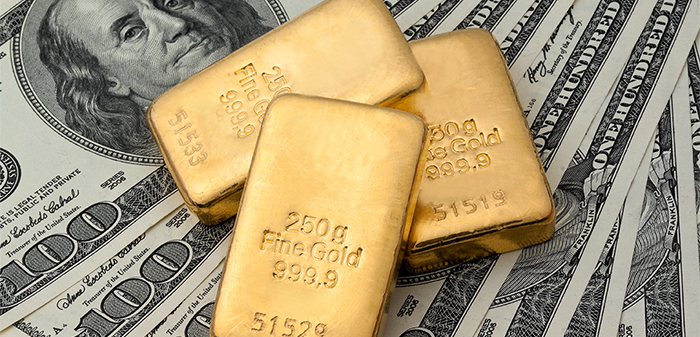On Thursday, Nov. 23, 2017, Americans will be quiet. Traffic will be sparse, commerce shut down.
Then, after indulging a cornucopia of food, gratitude will morph into violent fits and starts of materialistic impulse.
Thanksgiving Day is the calm before the storm.
Some rush headlong into Black Friday. Others avoid it.
At least they have a choice.
Other storms are unavoidable. Like the one that’s set to blow apart the stock market. The only question is not who will escape the storm but, rather, who will weather the storm best. And worst.
I have an idea …
First, The Calm
In the U.S., ideal market conditions include extremely low credit spreads. And right now, the perceived riskiness of lending money to all grades of U.S. corporations is at historic lows.

Earnings continue to support investor appetite as well. From Fox Business:
“More than 85% of S&P 500 companies have reported third-quarter results as of Wednesday morning, with roughly three-quarters of them beating earnings expectations, according to FactSet.”
Other measures — including new orders, inventories and capex — are also on the rise.
The picture is not hugely different outside the U.S., either …
 As a result, the perceived riskiness of emerging-market (EM) sovereign debt is at very low levels — the lowest in at least four years.
As a result, the perceived riskiness of emerging-market (EM) sovereign debt is at very low levels — the lowest in at least four years.
One analyst at BlackRock feels so comfortable about global conditions, he’s happy to recommend emerging-market debt as the best place to find income even though that class has already rallied 25% year-to-date.
His conclusion depends very much on central banks not raising interest rates much at all.
Noted.
Then, The Storm
It’s possible the market is completely underestimating the path of U.S. interest rates, simply because inflation isn’t roaring.
Again, that’s a fair assessment. There are some structurally deflationary forces to contend with.
But synchronized global growth is a recent development. And other markets appear ready to join in on the global equities bull market.
According to Reuters, the S&P 500 gained 82% in the last five years, while the S&P Goldman Sachs Commodity Index (GSCI) dropped by 34%. This year, however, the SPGSCI gained 7% to the S&P’s 18%.
In other words: Commodity prices have been decidedly deflationary until recently.
Regardless, there is also the U.S. dollar to contend with …
U.S. earnings are influenced greatly by the value of the U.S. dollar. S&P 500 companies with more than 50% of their business overseas are handily outperforming their counterparts on the earnings front.
EM economies and debt are similarly impacted by the buck.
EM currencies have come under pressure of late, even though emerging-market optimism is high.
Why?
It’s relative …
Expectations for U.S. interest rates are the primary driver of the U.S. dollar. And U.S. rate expectations drive expectations for the riskiest emerging-market currencies too.
When the U.S. dollar goes up, emerging-market currencies go down.
Where’s the problem?
Currencies act as a pressure valve for an economy. Their value can impact all things economic — trade, investment and consumption are the big three categories.
If the value of an EM currency is falling, for example, it could trigger capital outflows. Emerging markets still very much depend on international investment capital coming in. A reversal of those flows spells trouble.
So, even though a market storm will not spare developed economies like the U.S., capital flow is the reason why emerging markets will suffer most. A bet against emerging markets with the ProShares Short MSCI Emerging Markets Index ETF (EUM) is one way to play it.
Reuters just reported “money managers pulled $1.2 billion from the iShares 20+ year Treasury Bond ETF (TLT) last week — the most on record.” That’s a sign some smart players think U.S. interest rates could go higher.
Equity markets have done nothing but go up. But now is no time to get complacent — don’t let a belly full of turkey put you to sleep.
Do right,
JR Crooks



Carol A. Preece November 15, 2017
Kondratief cycles run 75-100 years. The time it is a’coming.
Mr Richard C Slayton November 11, 2017
Well, it is bound to happen but the timing has been the big question.
How to protect oneself in ones retirement account is the challenge.
Suggestions are welcome.
snelli November 11, 2017
And now that I a haven’t eaten the Turkey, what should I do?
Do we go long Dollar and short EM currencies?
‘
Do we go short Bonds?
Once again, only warnings and no guidance.
Do Right? Will get right on it
peter November 10, 2017
Doesn’t rising interest rates lead to a rising dollar which leads to falling commodity prices in US dollar terms? It seems that every time the dollar rallies commodities bear the brunt. Also, would a rising dollar create less expensive
opportunities for companies that are dollar rich to invest in emerging markets?
Peter